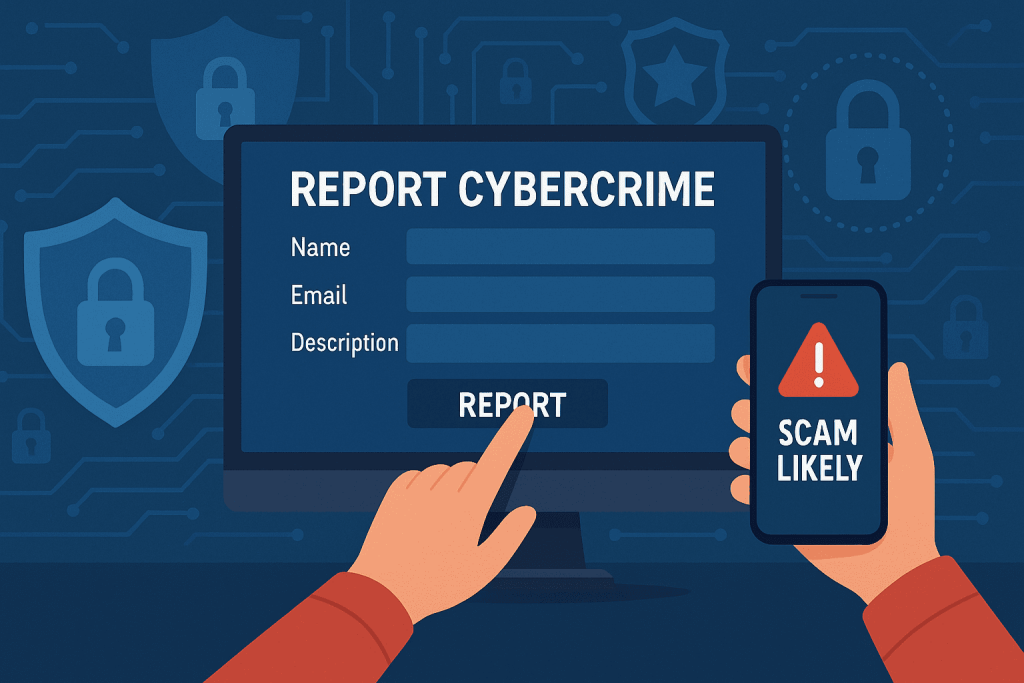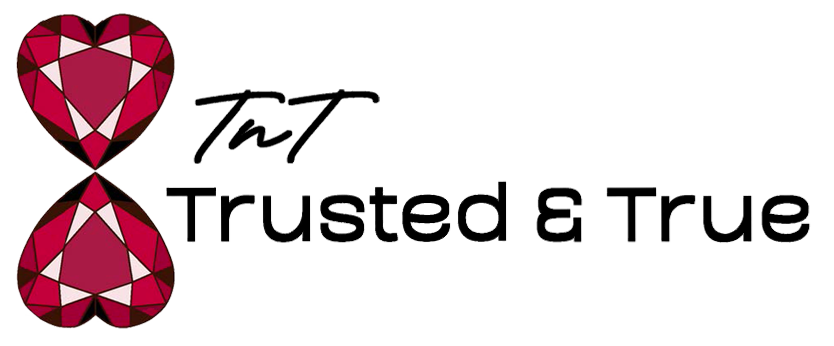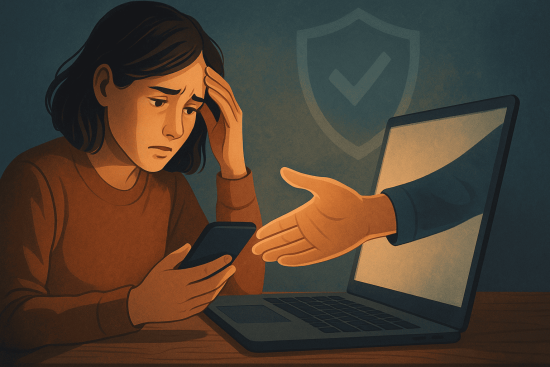It often starts with something simple a message that feels special, a connection that feels real. You finally meet someone online who listens, compliments, and cares. But one day, everything changes.
That same person now holds your trust against you. They demand money, threaten to leak your private photos, or manipulate you emotionally. Suddenly, your heart is racing, your mind spinning. Online Blackmail and Extortion Are Rising in Dating.
If you’re reading this, you might already be facing online blackmail, and you’re searching for one thing help. The good news is: you’re not alone, and you can take back control. This guide will walk you step by step on how to get online blackmail help after a scam, safely and effectively.
Understanding the Need for Online Blackmail Help
Before reacting, you need to understand what’s happening. Online blackmail (or sextortion) occurs when someone threatens to share private or compromising information unless you meet their demands usually money, photos, or silence.
Scammers thrive on fear. They use emotional panic as their weapon, knowing that most victims feel ashamed and isolated. But remember this truth: you are not at fault. The scammer is committing a crime, and there are real steps and resources designed to help you.
Step 1: Stop All Contact Don’t Reply or Pay
The first and most crucial step in getting online blackmail help is to stop engaging with the blackmailer.
They rely on your fear to maintain power. When you stop responding, they lose control.
Why you shouldn’t pay:
- Payment rarely ends the threats it encourages more demands.
- Many scammers operate in networks; once you pay once, your details may be shared.
- They thrive on emotional panic don’t feed their manipulation.
Instead, go silent and start documenting everything.
Step 2: Collect Evidence Before Deleting Anything
Even though your instinct might be to delete everything, don’t these messages are proof.
Evidence is your greatest protection when seeking online blackmail help.
What to save:
- Screenshots of all messages, emails, and chats.
- The blackmailer’s username, profile links, and email addresses.
- Any payment requests or transaction details.
- Dates and timestamps of communication.
Store this information securely on your device or a private cloud folder.
Step 3: Report the Incident to Authorities
Online blackmail is a cybercrime, and you have every right to report it without shame. Authorities handle these cases discreetly and can investigate your complaint thoroughly.
Where to report:
- In the U.S.: Report to the FBI Internet Crime Complaint Center (IC3).
- In the UK: Report to Action Fraud.
- In Canada: Contact the Canadian Anti-Fraud Centre.
- In Pakistan: Use the FIA Cyber Crime Wing.
If you’re in another country, search for your national cybercrime authority most have online reporting forms.

Step 4: Contact the Platform for Support
Most scams happen through dating apps or social media, and these platforms have dedicated teams to remove offenders. Reporting them not only helps you it helps prevent others from becoming victims.
Major platforms that offer support:
- Facebook & Instagram: Use the “Report” feature and contact support for content removal.
- WhatsApp: Block and report directly in chat options.
- Tinder, Bumble, Hinge: Use in-app report options for fake or abusive profiles.
Once reported, platforms can remove content, disable accounts, and sometimes assist in investigations.
Step 5: Get Professional Online Blackmail Help
If the threats continue or you feel overwhelmed, you can seek professional online blackmail help services that specialize in dealing with digital extortion cases.
Professional Help Can:
- Securely track and report blackmailers.
- Help remove leaked photos or videos.
- Communicate safely with authorities.
- Provide legal and emotional support.
Important: Always choose legitimate cybercrime assistance teams or lawyers. Avoid anyone asking for money upfront or promising “instant content removal” those are often scams themselves.
Step 6: Protect Your Online Accounts and Privacy
Scammers often gather information from your social media or email. Strengthen your privacy before they can misuse your data.
Quick digital safety checklist:
- Change passwords immediately.
- Enable two-factor authentication (2FA) on all accounts.
- Check your device for malware or spyware.
- Limit what you share publicly online.
- Review your friend or follower list remove suspicious profiles.
Your digital safety is the key to rebuilding your peace of mind.
Step 7: Seek Emotional and Psychological Support
Online blackmail isn’t just a technical issue it’s emotional. Victims often feel violated, anxious, or depressed. Reaching out for support can help you recover mentally and emotionally.
Consider:
- Talking to a trusted friend or family member.
- Joining online support groups for scam victims.
- Speaking with a licensed counselor or therapist.
Remember, healing is as important as justice.

Step 8: Learn How to Avoid Future Scams
Prevention is your long-term weapon. Once you’ve regained control, take time to strengthen your digital habits.
Tips to stay safe in the future:
- Never share personal or intimate photos online.
- Verify identities through video calls before trusting anyone.
- Avoid oversharing personal details on public platforms.
- Use reverse image search to spot fake profiles.
- Keep up with online scam awareness through blogs like Trusted and True.
You Have More Power Than You Think
Blackmailers use fear to control, but the moment you seek online blackmail help, their power begins to crumble. Every message you save, every report you file, and every boundary you set weakens their control.
You are not defined by what happened but by how you respond. With the right help, support, and knowledge, you can move forward safely, stronger, and wiser than before.
Trusted and True is the first dating platform truly dedicated to supporting victims of online blackmail and scams. We’re here to guide you through recovery, protect your privacy, and help you regain control with trusted resources.
FAQs
Who should I contact first for online blackmail help?
Start by collecting evidence, then report to your local cybercrime unit or the platform where the scam occurred.
Should I pay the blackmailer to stop them?
No. Payment encourages more demands. Instead, block and report them immediately.
Can authorities really help in online blackmail cases?
Yes, cybercrime authorities handle such cases seriously and can assist in tracking or stopping offenders.











